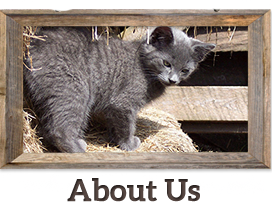Height Dominance Issues in Birds
Should I let my bird perch on my shoulder?
 Many bird owners allow their birds to perch on their shoulders as they go about their day. Your hands are free and your bird gets to spend part of the day with you. Although this seems like a great idea, it may not be appropriate in all situations or for all birds.
Many bird owners allow their birds to perch on their shoulders as they go about their day. Your hands are free and your bird gets to spend part of the day with you. Although this seems like a great idea, it may not be appropriate in all situations or for all birds.
A place of height is a place of dominance or superiority for many types of birds. It can be a territorial claim and position of control. It is considered as a preferred location for the top of the “pecking order.”
Unless trained properly, birds placed in high locations like the shoulders or on top of their cages are more likely to try and “run the show.” They may passively refuse the “up” command to hands, they may aggressively strike out or bite, and they may scream. If your bird is never on your shoulder, you also eliminate incidents of inappropriate biting of the ears, nose, lips, or eyes.
How can I avoid the problems associated with height dominance?
Although height is not an issue with all birds, temperamental or dominant birds should follow some simple rules.
- No high perches above the mid-chest of a standing owner.
- No perching on the shoulders.
- No free flight.
The best way to ensure your bird can come out and stay on a perch is to begin training your bird within the first week you bring it home. If you have had your bird for a while, begin training now.
- Birds need to understand that there are boundaries within the house.
- You, the owner, must decide what is acceptable in your family.
- All family members must follow the same rules.
- You, the owner, should be in control of your bird within a relationship of respect, not fear.
- Teach your bird to step up on command: it is extremely important for your safety as well as theirs.
Like a child or a puppy, a well-trained, obedient bird will be happier being allowed some freedom, and you will be happier with a well-trained bird.
Consider attending a bird behavior program such as Good Bird Inc., Busy Beaks Academy, or The Avian Behavior Lab. Lessons learned from the experts will help create a better working relationship between you and your bird.
© Copyright 2025 LifeLearn Inc. Used and/or modified with permission under license. This content written by LifeLearn Animal Health (LifeLearn Inc.) is licensed to this practice for the personal use of our clients. Any copying, printing or further distribution is prohibited without the express written consent of LifeLearn. This content does not contain all available information for any referenced medications and has not been reviewed by the FDA Center for Veterinary Medicine, or Health Canada Veterinary Drugs Directorate. This content may help answer commonly asked questions, but is not a substitute for medical advice, or a proper consultation and/or clinical examination of your pet by a veterinarian. Please contact your veterinarian if you have any questions or concerns about your pet’s health. Last updated on Sep 2, 2025.


